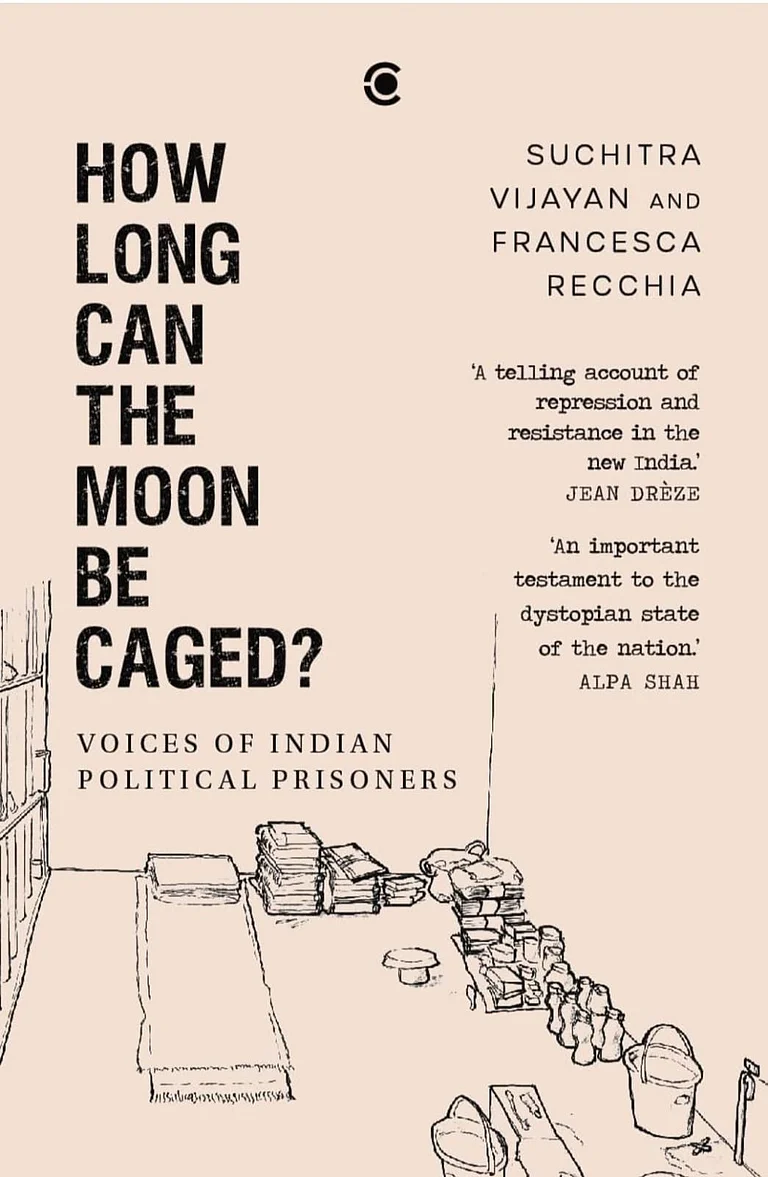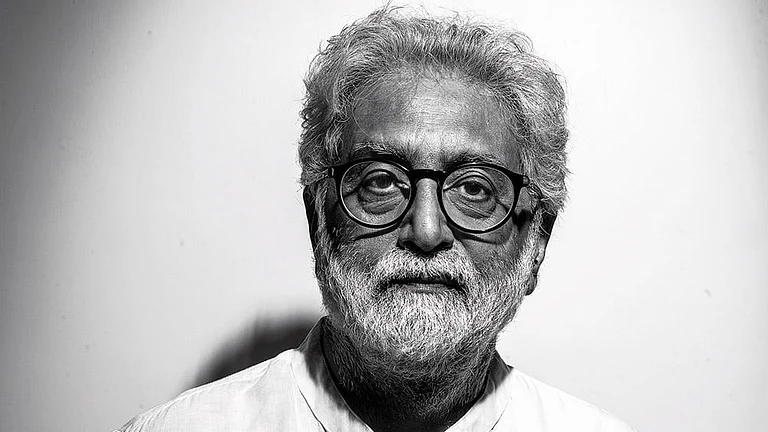Excerpted from A Long Season of Ashes with permission (India Viking, Penguin Random House, 2024) .
The Ghosts of History
May 2022 New Delhi
Me: ‘Pa, you must resume writing your diary again.’
He: ‘I am trying . . . I wrote a few sentences some days ago . . .’
Ma: ‘He has lost interest now. He says he gets tired soon. Something’s happened to him.’
Me: ‘Do you remember the years we spent in Udhampur?’
He: ‘Every single day.’
Me: ‘Write about those days.’
He: ‘I am reading a book these days.’
Me: ‘What about the translation of Lal Ded’s poetry? It’s been almost two decades in the making now.’
He: ‘I will go through it one more time.’
Me: ‘I have our domicile certificates. Shall I send them to you?’
He: ‘Keep them with you.’
Me: ‘Do you remember the exact date and month when you sent Henna and me away with Ratni Aunty and family? Was it February, March, April or May in 1990?’
Pa: ‘It was a winter day.’
Ma: ‘It was spring.’
Me: ‘But the diary says there was snow on the highway . . .’
Henna has inherited Pa’s memory. She was nine years old when the two of us left our home in Kashmir. She remembers that day. She reminds me too—Muslim neighbours arriving at our house early in the morning to carry our luggage to the truck parked on the road near the house of the Kaw family. Little would have been possible without their help. They made leaving easy. We didn’t need to lift the heavy things ourselves, not that there were too many of them.
‘Remember the day in 1990 when Pa fractured his toe in Jammu because a minibus ran over his foot,’ asks Henna. ‘We met him by chance at someone’s place. We had been searching for him for days when someone informed us that he had been injured in an accident but there was nothing to worry about. We had no idea where he was at the time. Such were those days when we were scattered . . .’
It is only now—when I am approaching the end—that the memory of many incidents has begun to resurface, layer by layer and image by image. After all, memory works in the strangest of ways. Henna recalls incidents and experiences that I don’t remember, while Ma adds some other details from her memory. Pa recalls things that he has never told anyone else. He doesn’t remember whether or not he has eaten in the present day, but he remembers what he used to feed Babuji day after day for over a year, when Babuji was unable to eat with his own hands.
This is what has become of us in exile. This is who we are now. We have become ghosts of history. The memory of our own history has become disjointed, partitioned, broken, hazy . . . but at the same time, it is alive and throbbing. Those who remember everything but choose to remain silent are one half of it and I am the other half.
This ‘exile memory’ has begun to consume me. I fear a day will come when I will have no recollection of my own past. Perhaps not even of myself.
Over the last two years, I have spoken to Pa and Ma every day about everything that happened to us to ascertain that I remember everything correctly and completely. Sometimes, during conversations about the past events that shaped our lives, we remember other people’s experiences more vividly than our own.
All the incidents are important because they’ve determined people’s destinies and impacted the course of their lives and those of their children. I owe the preservation of this memory to each one of us. To those who wish to understand the nature of the human condition and of suffering. However, several memories could be lost forever. And many can never be recalled, for it is their fate to be lost. Our lives will be equally defined by these un-memories, no matter how hard we try to conjure them up. There is no count. There can never be a count.
The loom of memory and un-memory spins in the strangest of ways. Years from now, some memories will resurface even when I am gone. They will come alive in the minds of our descendants.
‘What do you make of everything that we endured?’ I keep asking Pa, knowing full well the ramifications of asking such a question. It has now started to impact his memory. He doesn’t talk much. I observe his silence. It is not an ordinary silence. It is the silence of each one of us who, for years, witnessed the suffering of others while suffering ourselves. Pa has come to personify our collective silence.
He has laughed and cried. He has endured pain. He has held it inside as though it were a treasure.
Throughout the camp days, Babi kept us engrossed by narrating riddles and challenging us to crack them. We were never good at cracking them. Often, these riddles concealed memories from her own past and stories about her own youth. Memories and stories that pertained to our own lives too. She kept reminding us about the good times to come. Even in the most desperate of circumstances, she always sang of arrivals and never of departures. I realize now—all arrivals are departures too.
‘I want you to be with me at the time of my death,’ Babi said to Pa one day. She kept saying it day after day and night after night. ‘I want you to light my pyre.’
All he lived for from that day onwards was to fulfil her last wish. And he did. He was the saddest of us all when he lit Babi’s pyre. That sadness will never go away.
I can never forget his words: ‘This madness will save us from ruin.’
Elie Wiesel, the Nobel laureate and Holocaust survivor, says, ‘Sometimes I am asked if I know “the response to Auschwitz”. I answer that not only do I not know it, but that I don’t even know if a tragedy of this magnitude has a response.’
Yet once again, I explore the prospect of taking Ma and Pa to Kashmir for a few days this summer. What kind of trip will it be if we do get to undertake it? I worry. I am fearful of the psychological impact it might have. What will we do there? We will sit by the window of a hotel room and look at the world outside. Like a boy marvelling at the sights and sounds for the first time.
‘He looks for you and keeps on asking when you will be coming over, even when you are nearby,’ Ma says to me about Pa.
Memory, after all, is a book of faces.
(The extract ends here)
...
"Be Brave"
On September 23, my father, Arvind Gigoo, fell sick at a hotel in Jammu. On the previous day, Pa, Ma and I had taken a flight from Delhi to Jammu. The purpose of the trip was to get Ma and Pa’s physical verification done at the Treasury office in Jammu so that Pa continues to receive the monthly pension from the J&K Government.
The next day, Pa started slipping into a strange state from where revival seemed almost impossible. Given his condition, I decided not to take him to his house in Lower Roop Nagar, Jammu. Some of his friends came over to the hotel to see him. They narrated happy memories, worried that they might never get to see him again.
‘Be brave. I will last five more days. I am not thinking about death,’ whispered Pa into my ear, knowing he might not be able to do any more talking with me. We gave each other a kiss.
The next day, while waiting outside the Intensive Care Unit inside Metro Hospital, Faridabad, I re-read Pa’s will which he had drafted many years ago. It had specific instructions for me.
‘You will do what I want you to do when I die. I should be cremated wherever I die. In no case should my dead body be kept in home/house or a mortuary for my children to come to perform the last rites. I should be cremated the day I die. There is no need to wait for my children and their spouses. Soap and not clay should be applied to my dead body at the time of the last bath. Four or five neighbors or persons should carry my dead body in a vehicle to the nearest crematorium for cremation. The electric crematorium, if there is any, is better. There is no need for any funeral procession. My son Siddhartha Gigoo, daughter-in-law Aishwarya Pillai Gigoo and daughter Henna Gigoo Koul should not give the horrible and weird wail on a morning. The last day of everything should be the day when the ashes are collected and immersed in the nearest river. Any Arya Samaji can take care of other things. That day the inmates of the Missionaries of Charity should be treated to a meal. In no case should my wife (if she is alive) or any other member of the family light the lamp in the evenings. Rice and water and other eats should not be offered to the dead man, i.e., me. There should be no tenth day, no tonsure, no pachiwar, no masawar, no shadmos, no waharwar, no shraad and other rituals. There is no need to go to Hardwar or any other holy place. My daughter Henna Gigoo Koul should not perform any ritual connected with my death in her family. She should not perform the yearly shraad and observe fasts. She should attend the marriages and all functions of her relatives and friends.’
…
On September 28, the day after Pa’s 79th birthday, I picked up Pa’s bone from the mound of ash—all that remained of him. The bone that had bothered him and caused him discomfort for the last two years. I held it on my palm for some time and gave it a kiss before placing it in an earthen pot with the rest of the bones. We immersed the bones in Yamuna.
‘Take me home, to Kashmir, for a few days,’ Pa had said to me some months ago.'

























